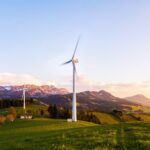The European Commission has set out a new framework of actions to protect and restore the world’s forests, which host 80% of biodiversity on land, support the livelihoods of around a quarter of the world’s population, and are vital to our efforts to fight climate change.
The comprehensive Communication published today introduces measures for enhanced international cooperation with stakeholders and Member States, promotes sustainable finance, better use of land and resources, sustainable job creation and supply chain management, and targeted research and data collection. It also launches an assessment of possible new regulatory measures to minimise the impact of EU consumption on deforestation and forest degradation.
European approach
The ambitious European approach outlined today is a response to the continued widespread destruction of the world’s forests; an area of 1.3 million square kilometres was lost between 1990 and 2016, equivalent to approximately 800 football fields every hour.
Why is it important to protect forests?
Forests are indispensable. They are our life-support system. The air we breathe is from forests, we rely on forests for foods, biodiversity, energy and more. Protecting and restoring world’s forests is crucial for maintaining and increasing human well-being and putting our societies on to a sustainable path.
Forests cover 30% of the Earth’s land area, host 80% of the world’s terrestrial biodiversity, provide essential goods and services, including climate and water regulation and give subsistence and income to about 25% of the global population. Forests hold cultural, social and spiritual values, and represent a large part of customary lands inhabited by indigenous peoples. They provide a direct livelihood for almost 2 billion people worldwide.
How will the Communication address the problem?
The new Communication provides a coordinated and coherent framework at EU level for a European contribution to tackling the problem of deforestation, forest degradation and restoration. It includes measures in the demand and supply-side dimension, addresses international cooperation, finance and research & innovation. This includes fostering a multi-stakeholder and Member State platform on deforestation and forest degradation, setting up an EU Observatory on deforestation and forest degradation, scaling up funding to support producer countries in their efforts, and assessing additional demand side measures, including regulatory measures aiming to ensure a level playing field, to increase supply chain transparency and minimise the risk of deforestation and forest degradation associated with commodity imports in the EU.
What is deforestation and forest degradation?
Forests are rapidly disappearing around the world. Deforestation refers to the permanent destruction of forests and woodlands, and conversion to non-forest uses, such as agriculture, pasture, and urban areas. Forest degradation is the reduction in quality of specific elements of forests, lowering the capacity to provide products and services. A degraded forest implies that the forest has been severely damaged by human activities or natural causes such as forest fires, pests, and climate change.
What is causing deforestation and forest degradation?
Deforestation and forest degradation are driven by many factors which vary according to regional and local contexts. The demand from an increasing global population for food, feed, biofuel, timber and other commodities puts pressure on land use and threatens the conservation of the world’s forests. Low productivity and low resource efficiency in agricultural production also increase pressure on land. Approximately 80% of global deforestation is caused by the expansion of land used for agriculture. Urban expansion, infrastructure development and mining also drive deforestation.
Why does the EU have to address this?
Deforestation is closely linked to the challenges of biodiversity decline and population increase. Emissions from land use and land use change, mostly due to deforestation, are the second largest cause of climate change (after fossil fuels), accounting for nearly 12 % of all greenhouse gas emissions. This is more than the transport sector.
For more information
Press release: Commission steps up EU action to protect and restore the world’s forests
Communication on stepping up EU action against deforestation and forest degradation







Leave a Reply